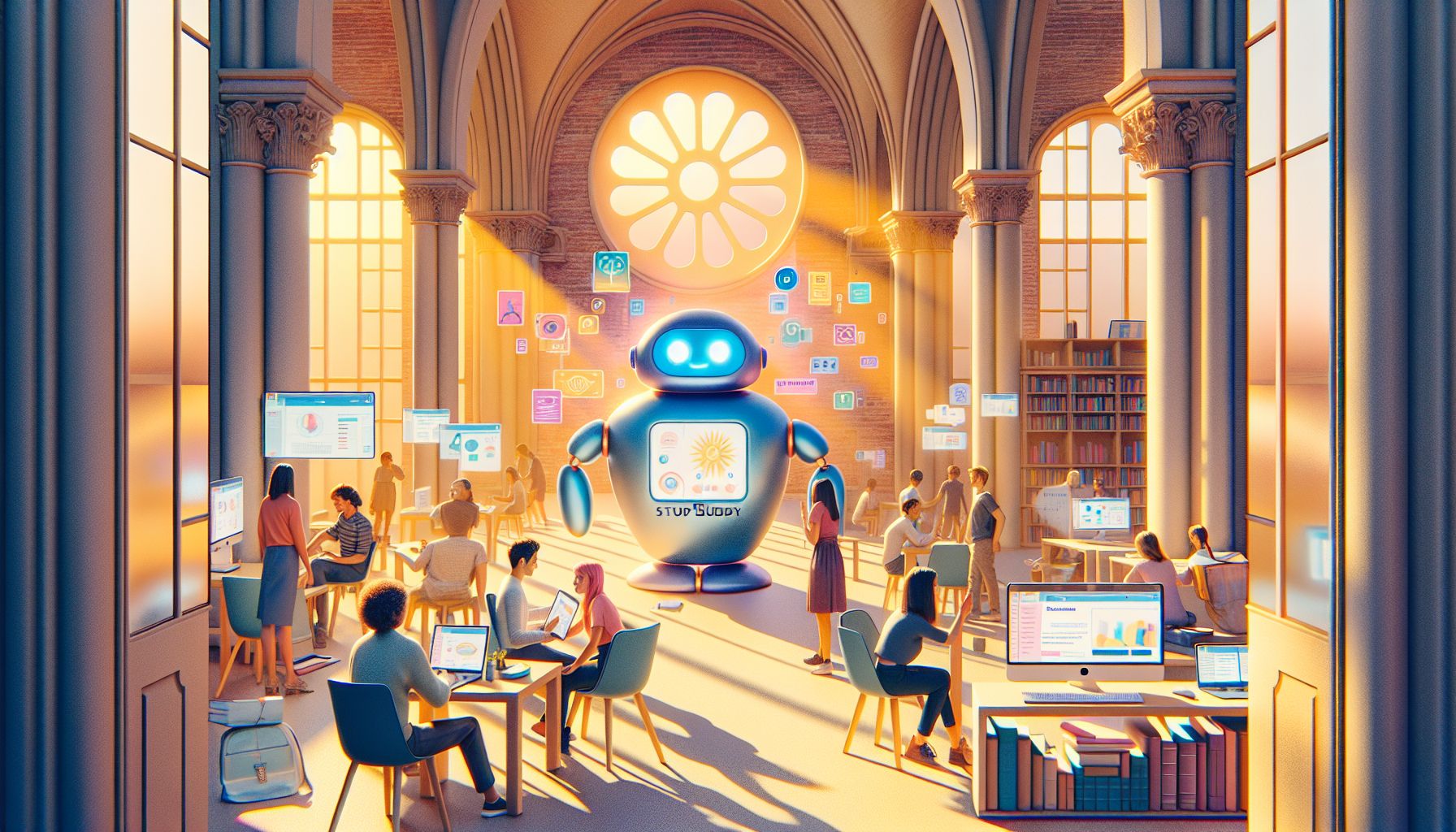AI Chatbots Revolutionizing Education at University of Twente

Twente, Saturday, 4 January 2025.
Research at the University of Twente explores AI chatbots’ integration into education, highlighting potential benefits and challenges while aiming to enhance learning experiences through a ‘StudyBuddy’ system.
Study Scope and Participation
A comprehensive study at the University of Twente has engaged 58 participants across various academic levels to evaluate the integration of AI chatbots in education [1]. The diverse participant pool includes bachelor’s and master’s students, PhD researchers, and educators, with an age distribution ranging from 18 to over 65 years old, comprising 56% female and 44% male participants [1]. This research, released on January 2, 2025, specifically focuses on developing ‘StudyBuddy,’ an AI-powered chatbot system designed to revolutionize educational support [1].
Key Benefits and Features
The StudyBuddy system aims to provide several crucial advantages in the educational environment. Key benefits include offering timely support when educators are unavailable, promoting collaborative learning, and enhancing writing skills [1]. The system is being developed to deliver personalized learning support and proactive engagement with students while maintaining adaptability across different academic levels [1]. Importantly, the chatbot is designed to not simply provide direct answers but rather integrate seamlessly with the learning management system to promote deeper understanding [1].
Addressing Challenges and Concerns
The research team has identified several critical challenges that need careful consideration. Primary concerns include the potential for misinformation, misalignment with learning objectives, and risks of plagiarism [1]. Additionally, educators have expressed apprehension about technological literacy gaps and technophobia affecting the effective utilization of AI systems [1]. To address these challenges, the University of Twente is focusing on developing robust privacy measures and ensuring that the chatbot promotes independent engagement with learning materials rather than fostering dependency [1].
Future Implementation and Development
The project emphasizes a human-centric design approach aligned with Industry 5.0 and Education 5.0 paradigms [1]. The development team is actively working on features that will explain AI outputs and promote critical evaluation of information [1]. The research findings suggest that future implementations should focus on maintaining a balance between AI assistance and human interaction, ensuring that the technology complements rather than replaces traditional educational relationships [1]. The University of Twente’s innovation fund supports this ongoing development, highlighting the institution’s commitment to advancing educational technology [1].

